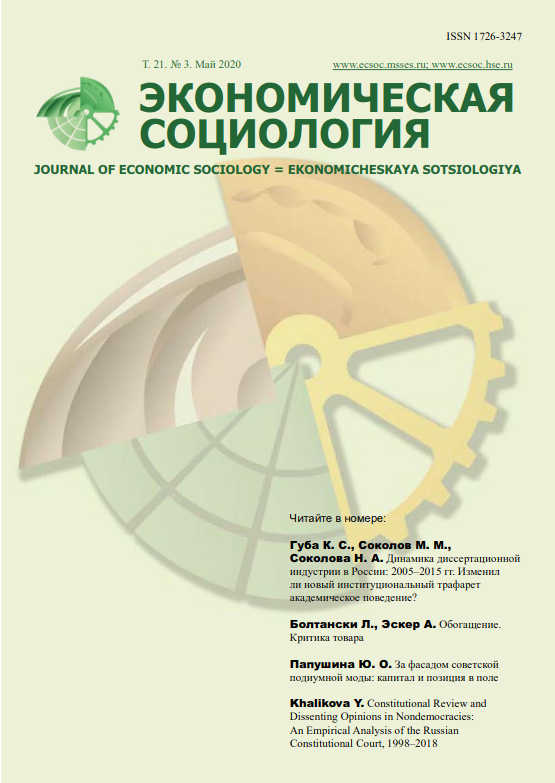The Dynamics of Dissertation Industry in Russia, 2005–2015. Did New Institutional Templates Change Academic Behavior?
Abstract
The paper introduces the notion of the “institutional template,” defined as a highly legitimate example of a certain practice to which formal mechanisms of assessing the degree of correspondence are attached. Arguably, institutional templates are currently the major vehicles through which coercive isomorphism spreads across the academic world. While correspondence measures often take form of quantitative indicators, this is not always the case, so this paper analyzes the history of regulations of dissertation production in Russia as an example of a predominantly non-quantitative template. We use three datasets covering approximately 250,000 cases of dissertation defenses in Russia between 2005 and 2015 to discover the outcomes of the template’s introduction in the dissertation industry. We show how the new regulations allowed a reduction in the number of defenses—nearly by half. However, contrary to the intentions of the template inventors, the reduction was distributed evenly between mathematics, natural sciences (presumably less affected by degree devaluation), and social sciences (the most affected). There was also no concentration of dissertation production in the top research centers and no evidence of intensified migration of degree candidates to such centers. Overall, there is no evidence that the template produced more obstacles for authors of low-quality dissertations than those of high quality. Using the data from interviews with members of dissertation councils, we argue the results of the template: first, it required enormous bureaucratic efforts to demonstrate an individual’s ability to fit into it, and, second, its inability to account for local circumstances of particular disciplines sometimes resulted in de facto negative selection.













